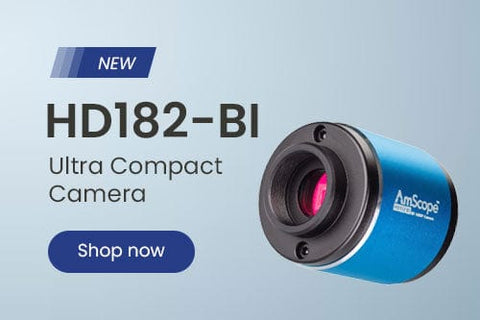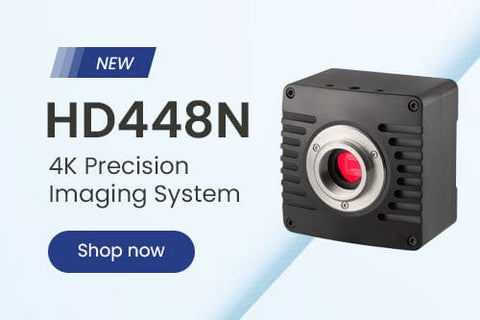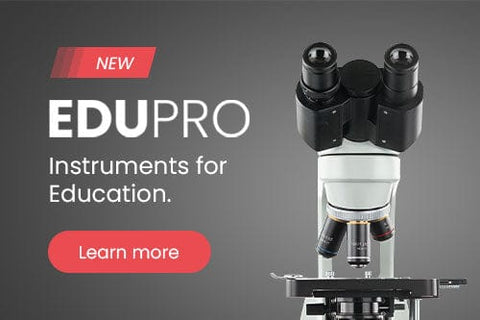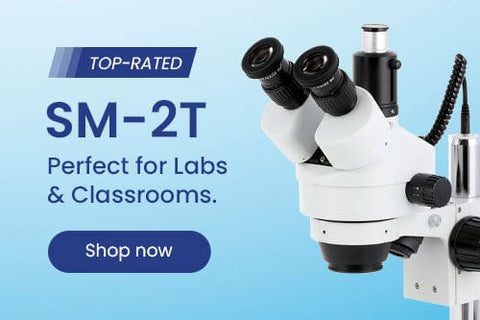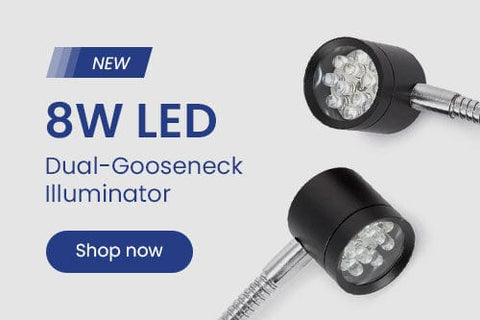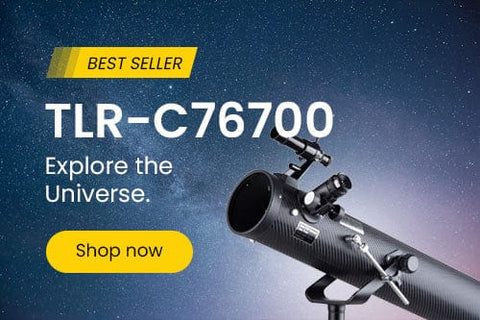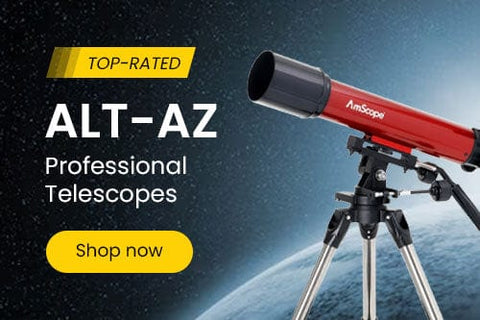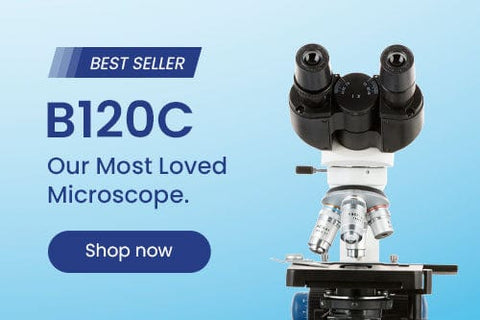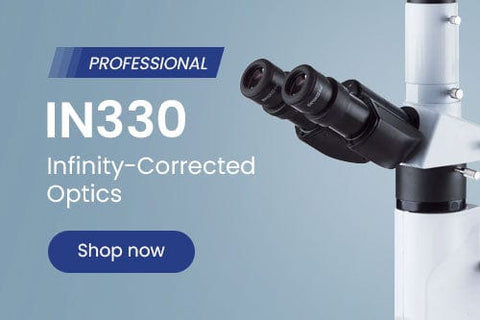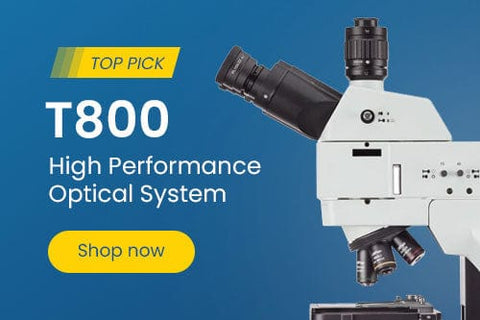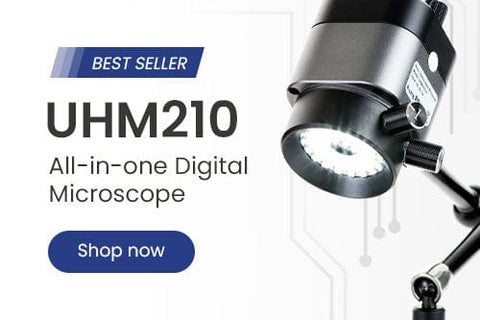- Microscopes
- Cameras
- Lab Supplies & Equipment
- Shop By Brand
- Lab Supplies by Category
- Analyzer Consumables
- Balances
- Bags
- Beakers
- Bench Scale Bases
- Bottles
- Bottletop Burettes
- Bottletop Dispensers
- Boxes
- Blank Microscope Slides & Cover Slips
- Blood Collection
- Caps
- Carboys
- Centrifuges
- Centrifuge Tubes
- Cold Storage
- Containers
- Cryogenic Vials
- Culture Tubes
- Cylinders
- Dispensers
- Digital Dry-Baths
- ESR Products
- False Bottom Tubes
- Flat Bottom
- Funnels
- Gel Documentation
- Glassware
- Glass Test Tubes
- Histology
- Homogenizers
- Hotplates-Stirrers
- Inoculation Loops and Spreaders
- Liquid Handling Products
- Manual-Electronic Pipettors-Pipettes
- Microscope Slides
- Overhead Stirrers
- Pipette Controller (Serological Filller)
- Pipette Tips
- Plastic Test Tubes
- PCR Tubes, Strips & Plates
- Racks
- Repeater Pipettor
- Rockers
- Rotary Evaporators
- Serological Pipettes
- Shakers
- Spectrophotometers
- Syringe Tips
- Sample Tubes
- School/Classroom Supplies
- Screwcap Test Tubes
- Self-Standing
- Test Tube Racks
- Test Tubes & Vials
- Transport & Storage Tubes
- Thermal Mixers
- Transfer Pipets
- Urinalysis
- Vacuum Pumps
- Weighing Dishes
- Lab Equipment
- Balances
- Bench Scale Bases
- Centrifuges
- Digital Dry-Baths
- Gel Documentation
- Homogenizers
- Hotplates-Stirrers
- Overhead Stirrers
- Pipettors
- Rockers
- Rotary Evaporators
- Shakers
- Serological Pipettes
- Spectrophotometers
- Thermal Mixers
- Vacuum Pumps
- Liquid Handling Products
- Manual-Electronic Pipettors-Pipettes
- Pipette Tips
- Racks
- Pipette Fillers-Controllers
- Repeater Pipettor
- Syringe Tips
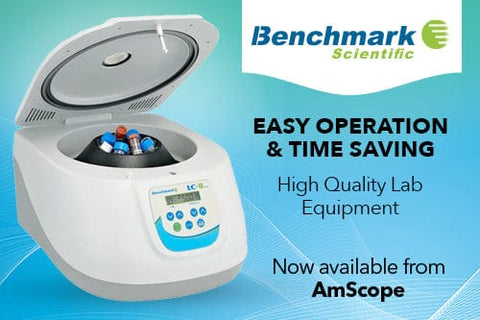
Cost effective products and solutions designed to improve laboratory efficiency, safety and results.
SHOP BENCHMARK SCIENTIFIC >
- Slides & Accessories
- Slides
- Cameras
- Illuminators
- Adapters
- Eyepieces / Objectives
- Bulbs
- Magnifying Lamps
- Monitors and Tablets
- View All Categories
- Adapters
- DSLR Adapters
- USB Camera Adapters
- Ring Light Adapters
- Power Adapters
- Barlow Lens
- Books & Experiments Cards
- Bags & Cases
- Bags
- Cases
- Cameras
- Circuit Board Holders
- Cleaning Kits
- Condensers
- Darkfield
- Phase Contrast Kits
- Polarizing Kits
- Dust Covers
- Eye-Guards
- Eyepieces
- 20mm
- 23mm
- 30mm
- 30.5mm
- Filters
- Microscope Filters
- Illuminator Filters
- Fluorescence Kits
- Conversion Kits
- Filter Cubes
- Focusing Racks
- Fuses
- Illuminators
- Bulbs
- LED Illuminators
- Fiber Optic Illuminators
- Fluorescent Illuminators
- Ring Lights
- Stand Lights
- Goosenecks
- Gooseneck Attachments
- Immersion Oils
- Loupes
- Magnifying Lamps
- Clamp Lamps
- Desktop Lamps
- Rolling Stand Lamps
- Mechanical Stages
- Monitors and Tablets
- Calibration Slides & Stage Micrometers
- Stage Warmers
- Stain Kits
- Stands
- Articulating Arm Stands
- Boom Stands
- Table Stands
- Tweezers
- Other Accessories
- Shop By Industry
- Shop By Industry
- Botany
- Agronomy & Forestry
- Horticulture
- Phytopathology
- Chemistry
- Biochemistry
- Biotechnology
- Cannabis
- Pharmaceutics
- Consumables
- Beer & Wine
- Cosmetics
- Food & Beverage
- Electronics
- Circuit Boards & General Electronics
- Mobile Phone Repair
- Semiconductors & Wafers
- Environmental
- Asbestos
- Ecosystem Research
- Mud Logging
- Soil Treatment
- Water Treatment
- Forensics
- Ballistics
- Fingerprint Analysis
- Genetic Identification
- Hair & Fiber Analysis
- Handwriting Analysis
- Industrial
- Aerospace
- Automotive
- Dental Lab & Production
- Glass Industry
- Industrial Inspection
- Mechanical Parts
- Paper Industry
- Petrochemical
- Plastics
- Printing Industry
- Quality Assurance & Failure Analysis
- Textiles & Fibers
- Tool Making
- Wood Production
- Jewelry & Gemology
- Engraving
- Gemology
- Jewelry Repair
- Stone Setting
- Watch Repair
- Hobby
- Coins & Collecting
- Stamps
- Modeling & Assembly
- Sculpting
- Repair
- Telescopes
- Metallurgy
- Archaeology
- Geology
- Mining
- Petrology
- Medical & Microbiology
- Anatomopathology
- Bacteriology
- Biochemistry
- Cell Culture
- Cytology
- Dental Microbiology
- Dermatology
- Dissection
- Gout & Rheumatology
- Hair & Fiber Analysis
- Hair Transplant
- Fluorescence
- Hematology & Live Blood Analysis
- Histopathology
- Mycology
- Medical Devices
- Microsurgery
- Neuropathology
- Oncology
- Parasitology
- Pathology
- Semen Analysis
- Virology
- Veterinary & Zoology
- Breeding & Semen Analysis
- Entomology
- Fecal Smears & Floats
- Marine Biology
- Ornithology
- Veterinary Medicine
- Zoology
- Shop By Industry
- Students
- Telescopes
- Buy With Prime
- Sale
Explore The Gift Lab
- Compound Microscopes
- Shop By Brand
- AmScope
- Euromex
- Omax
- Shop by Head Type
- Binocular
- Monocular
- Trinocular
- Multi-head & Training
- Shop By Specialty
- Brightfield
- Darkfield
- Phase Contrast
- Inverted
- EPIfluorescence
- Polarizing
- Digital Integrated
- Metallurgical
- Shop By Application
- Education
- Research
- Veterinary
- Compound With Digital Head
- Shop Best Sellers
- Shop All Compound
- Stereo Microscopes
- Shop By Brand
- AmScope
- Euromex
- Shop By Objective Type
- Fixed Power
- Zoom Power
- Single Lens
- Common Main Objective
- Shop By Stand Type
- Articulating Arms
- Boom Stands
- Gooseneck Stands
- Table Stands
- Other Stands
- Shop By Head Type
- Binocular
- Monocular
- Trinocular
- Simul-Focal
- Shop By Industry
- Video Inspection
- Industrial Inspection
- Microscope Heads
- Shop Stands
- Articulating Arm
- Boom Stands
- Table Stands
- Stereo With Digital Head
- Shop Best Sellers
- Shop All Stereo
- Specialized Microscopes
- Digital Microscopes
- Kids, Student Microscopes
| AmScope Blogs
Introduction to Phase Contrast Microscopes

Phase Contrast Microscopy was introduced by Frits Zernike, a Dutch physicist, in 1934. The microscopic technique is contrast-enhancing, allowing users to view high-contrast images of living cells, tissue slices, microorganisms, latex dispersions, glass fragments, and other transparent specimens.
When living cells are unstained, they do not absorb much light. Due to poor absorption of light, there's an almost negligible difference in the distribution of intensity in an image. As a result, the cells are either barely visible or invisible under a brightfield microscope that shows specimens by using transmitted light.
That's why there's a need for phase contrast microscopy. Below, you'll learn about phase microscopes along with their applications and use.
What Is a Phase Contrast Microscope?
As mentioned earlier, brightfield microscopes use transmitted light to view cells. These microscopes don't work well when viewing transparent specimens because there's little difference in the distribution of intensity in an image.
Phase contrast microscopy was designed to overcome this limitation by converting the phase difference of the light passing through a specimen into an intensity difference. This is done by splitting the light into two beams, one being slightly out of phase with the other. The two beams pass through the specimen and then recombine at a point after the objective lens.
The recombination of the light creates an interference pattern that can be visualized as a bright halo around the dark central nucleus of the cell. The size, brightness, and contrast of this halo are directly related to the phase difference of the light waves that pass through the specimen.
Since phase contrast increases the difference of the light phase, it allows for a separation between the light diffracted by the specimen and the background light. The microscope creates this light phase difference by adjusting the light in the background by a one-quarter wavelength using a phase plate.
What Are Phase Contrast Microscopes Used For?
Phase contrast microscopy is often used to view unstained cells and other transparent specimens. However, it can also be used to view the following:
- Fibers
- Thin tissue slices
- Subcellular particles, such as organelles
- In-culture living cells
- Microorganisms
How Do You Set Up Phase Contrast Microscopes?
In order to get the maximum contract effect, it's important to carefully align the phase contrast microscope. Suppose you're using the Turret Phase Contrast Kit for 690 Series from AmScope. Here's how to set it up;
- Set the condenser of the microscope on the BF setting to focus on a specimen. The condenser's height must be adjusted to get the best image quality.
- Remove an eyepiece lens and replace it with a centering telescope. You can use the set screw on the centering telescope to focus the telescope.
- When you look through this telescope, you'll see two rings. Use the adjustment screws on the centering telescope to align the rings, making them concentric.
- Now, replace the centering telescope with the eyepiece lens.
- Place the specimen on the stage again and view it through the eyepiece lens to get a phase contrast observation.
Whenever you change the objective lens to a higher or lower magnification, you also need to adjust the setting of the phase condenser. For example, the AmScope microscope mentioned here has four objectives: 4x, 10x, 40x, and 100x. You can change the objective lens according to the specimen you're viewing.
Parts of Phase Microscopes
Phase contrast microscopes have certain components that work in sync to produce high-contrast images. Here‘s a description of these components.
Annular Diaphragm
The annular diaphragm is an adjustable disk that is placed in the light path of a microscope. This diaphragm helps to control the amount of light that passes through the specimen.
It is placed underneath the condenser and comprises a circular disc with a circular annular groove. The light rays pass through this annular groove and fall on the specimen you're studying.
Phase Plate
The phase plate is a glass or plastic plate with a ¼ wavelength adjustment. When it is inserted into the light path, the phase difference of the light waves passing through the specimen is introduced.
This plate is used to control the amount of contrast in an image and is placed between the condenser and the objective lens. The phase plate has a thick or thin area that's known as the conjugate area. Every specimen will show a different contrast level under the microscope, based on the refractive index of its cell components.
Applications of Phase Contrast Microscopy
Phase contrast microscopy is used primarily for viewing transparent specimens, especially when high-contrast images are required. For instance, AmScope has a comprehensive selection of phase contrast microscopes that can be used to view translucent specimens that are colorless without staining. Some instances in which phase contrast microscopes are used to make observations include:
- In-Culture Cell Analysis. Cells in culture can be observed under a phase contrast microscope to see their morphology and behavior without the need for staining.
- Microbial Analysis. Bacteria, fungi, and other microorganisms can be observed in their natural state using a phase contrast microscope. Researchers find this especially useful when studying antibiotic resistance.
- Lithographic Pattern Studies. Phase contrast microscopes are also used in the semiconductor industry to study lithographic patterns. In this process, geometrically shaped patterns are transferred to a thin layer of resist (a radiation-sensitive material) covering the semiconductor wafer's surface.
- Latex Dispersions. Latex is a colloidal dispersion consisting of polymeric particles. These particles are water-dispersed and are just a few hundred nanometers. Phase contrast microscopy can be used to observe latex dispersions to study polymer stabilization.
Conclusion
As evident, there are applications for phase contrast microscopy since it is a versatile tool that can be used to view a wide range of specimens. By adjusting the settings on the microscope, you can maximize the contrast of each image for clear and accurate observation.
When looking for the best microscopes for phase contrast, AmScopes is the ideal place to find the best pick. Featuring everyday low prices and five-year warranties on all microscopes, AmScopes has a wide selection of phase contrast and other types of scopes to meet all your school, university, or research-related microscopy needs.
Free Shipping on orders $149+
Same day shipping for orders within the contiguous U.S.
Easy Returns
Hassle-free 30-day return policy. 100% satisfaction guarantee.
Quality Products
5-year warranty on AmScope microscopes.
Got a question?
Speak to our team of experts and find the products you need.
